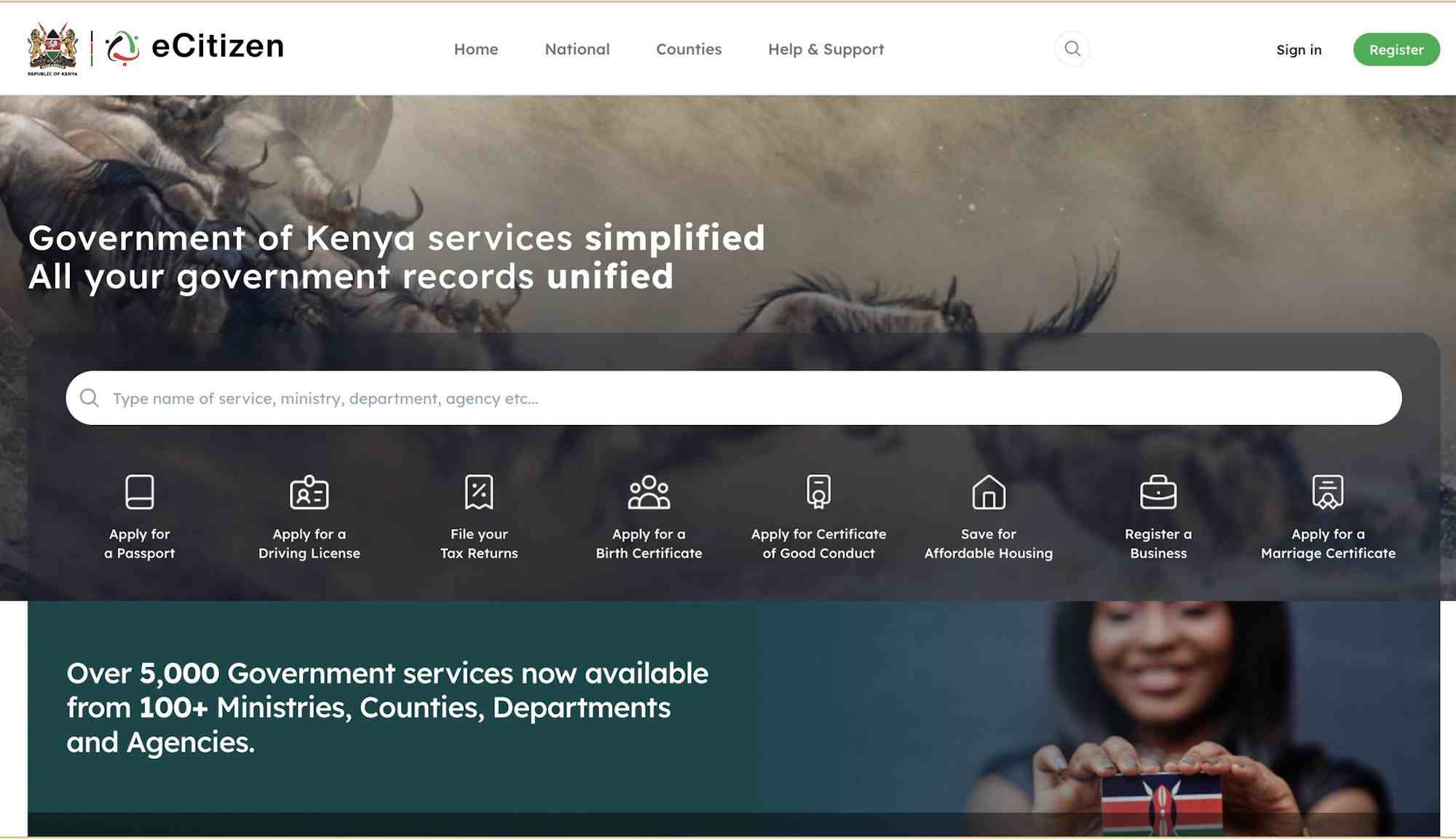By John Walubengo
For those new in town, eCitizen is an online portal through which government departments and agencies provide digital services for citizens to apply for passports, driving licences, business registration certificates, vehicle logbooks, title deeds, and many more.
However, as the government continues to aggressively digitize its services around the eCitizen platform, issues around its ownership, payments, and adoption continue to pile up.
The Auditor General recently stated that the state needed more to have no control over the eCitizen and payment platforms. This statement should worry all citizens of Kenya, mainly because more and more citizen-to-government interactions will happen over this platform.
Yet this is only partially fresh news to those tracking the development of the eCtizen portal over the years.
Ownership Wrangles
In 2017, the disputes and battles around ownership and operation of the portal reached the courts after the private developers, Goldrock Capital, sued Treasury for denying them access to the payment component of the platform.
In the court proceedings, Treasury argued that they are still trying to remember when and who hired GoldRock Capital to act on behalf of the government. This was four years after eCitizen was in operation, and the private partners were facilitating billion-dollar transactions.
With more court cases against the platform, it is evident that the issues were never resolved, even as we continue to pile more and more government services onto the eCitizen platform.
It is difficult to understand why what one would imagine was a simple PPP (Public Private Partnership) issue that should have been easily guided and resolved by the PPP Act (2014) continues to plague what is potentially a transformative project for the government.
But beyond ownership struggles, we have adoption challenges.
Most recently, someone went to court to challenge a government directive that forces educational institutions to receive tuition fees through the eCitizen platform.
They argue that school fees, particularly in rural settings, are often settled the old way—through barter trade.
Adoption Challenges
Headteachers are known to accept a bag of maize from parents instead of the tuition fee owed. Therefore, completing such a trade-off is challenging to push the maize assets through a digital platform.
Yet others have argued that educational institutions being forced to use a payment platform with a minimum convenience fee of 50 shillings is non-sensical if the student is paying for lunch that costs them 40 shillings.
These are some of the apparent challenges that customers face. However, more challenges need to be more evident from the outside. These include, but are not limited to, privacy issues.
For example, who else has privileged access to the billions of data points from citizen transactions on the platform? What arrangements exist for whoever is mining these treasure troves of data for insights?
Your digital footprint is worth more than the contentious Ksh 50 convenience fee we must pay.
It is time the government had these and all other pertinent issues ironed out once and for all.
John Walubengo is an ICT Lecturer and Consultant. @jwalu.
![]()




